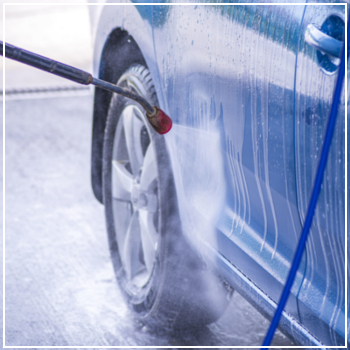In recent times, many people have been leaning towards pressure washing their cars at home, especially with social distancing measures in place. But it’s important to remember that improper use of a pressure washer can lead to serious damage, such as removing the paint and exposing the bare metal, which could eventually result in rusting. Before you dive into this DIY project, here are some crucial tips you need to keep in mind. Contrary to what most people think, pressure washing isn’t just about blasting your car with a powerful stream of water. These systems come in either electric or gas-powered varieties, and adjusting the PSI (pounds per square inch) is key to avoiding damage. Additionally, the type of nozzle you use matters a lot—different angles offer varying levels of intensity. Many models allow you to add soap or a cleaning agent to enhance the cleaning process. To avoid damaging your car's paint job, follow these guidelines: After taking these precautions, double-check that all windows, doors, and trunks are closed. Start by rinsing off any loose dirt or mud from a distance of four to five feet. Afterward, apply a suitable detergent that’s compatible with both your pressure washer and your car. If you're planning to use a brush alongside the pressure washer, make sure it’s clean and free of debris to prevent scratching the surface. Wear sturdy, closed-toe shoes while working, as the pressure washer’s stream can be surprisingly strong and might cause injury to exposed skin. Despite its appeal, Consumer Reports advises against pressure washing your car due to the significant risks involved. High PSI can easily strip paint or create scratches, allowing rust to form on the exposed metal. Furthermore, the powerful spray can send small stones and dirt flying, causing further abrasion on the surface. Even beyond these major concerns, pressure washing often results in more harm than good, particularly for inexperienced users: If you'd rather avoid the potential pitfalls of pressure washing your car, consider bringing it to DaSilva’s Auto Body for professional exterior detailing and rust removal services. Contact our Naugatuck location to schedule an appointment today. Tenor Horn,Top Class Tenor Horn,Flat Key Tenor Horn,Rose Brass Tenor Horn ZhengOu Musical Instruments Co.,LTD , https://www.zomusical.com There's a common belief among DIY car enthusiasts that pressure washing is the ultimate way to get your vehicle spotless and looking brand-new. It’s seen as a faster, more efficient alternative to hand-washing and waxing the exterior.
There's a common belief among DIY car enthusiasts that pressure washing is the ultimate way to get your vehicle spotless and looking brand-new. It’s seen as a faster, more efficient alternative to hand-washing and waxing the exterior. Mastering the Art of Pressure Washing Your Car
Potential Pitfalls of Pressure Washing
How Pressure Washing Affects Your Car’s Paint Job